The summer of 2011 must be an exhilarating time for Prof. Dennis Y. M. Lo, Li Ka Shing Professor of Medicine of CUHK and director of the Li Ka Shing Institute of Health Sciences, and his family. He was elected to the Royal Society, the prestigious UK academy of science founded in 1660, joining a long and illustrious line of scientists that include Newton and Darwin, and went to London on 15 July to sign himself into the history of science. He was also awarded the Silver Bauhinia Star by the HKSAR Government in its July Honours List for his research excellence and contributions to the welfare of patients. Professor Lo shares a few thoughts on the Royal Society and on scientific research and education.
What happened on 15 July?
Before the ceremony on the 15th, a symposium was held on 13th and 14th July for each of the new Fellows to give a brief presentation. It was interesting to hear so many scholars from different fields speak about their work. We were shown an ancient book where the inaugural presentation of Newton was recorded. Nowadays the presentations are of course videotaped, but the sense of history and community had already begun to enthrall me.
On 15 July, the new Fellows were given a briefing on the history of the Society, how it began in 1660 and obtained a Royal Charter a few years later. That’s when the tradition of signing the Charter Book began. It’s the same book in which I inscribed my name on 15 July. It is over 300 years old and still has enough pages for new Fellows in the next 100 years!
Before the ceremony we were given time to practise using the quill for it was not at all easy to write with this traditional instrument. When I signed my name on the Book, I was of course in awe of the solemnity of the occasion and the moment. But I also had to be extremely focused on the act of signing. I could hear and feel the rustle of the quill on the paper, and see the ink spill and sink on the paper to form my name in English and Chinese. I felt proud and happy to have been placed alongside so many distinguished scholars both past and present.
How do you see the role of the Royal Society in promoting science?
The Royal Society has essentially laid down the mode of scientific enquiry in the western world. In as early as the 17th century, it had already assembled a community of scientists and cultivated the practice of examining data in detail, conducting experiments, encouraging debates among peers and publishing the results. This evidence-based method of scientific enquiry is still with us today. So in addition to its tremendous contributions in terms of leadership and innovation in scientific circles, the Royal Society has far-reaching influence on how generations of scientists have plied their trade.
How close is science from decoding or even creating life and what ethical issues do you foresee?
The theory for decoding life’s secret has been available for some time, but recent development in biotechnology has quickened the process. In the near future, the entire genetic make-up of a human being will be readily known soon after his/her birth, and through technology developed in our laboratory, should that be the parents’ preference, the genetic blueprint can be deciphered even prior to birth. But genomic information is just the building blocks of life, like the alphabets or the lexicons of a language. The next thing to do is to understand the meanings as they are joined in sequence or in combination. This would be equivalent to inferring the contents of a book from individual words. All these developments would no doubt create complicated moral and ethical problems but I have strong faith in human wisdom and benevolence in solving them. The technology for creating test-tube babies was initially greeted with distrust and anxiety, but has now become a more or less accepted procedure and the medical and societal benefits are numerous. Overall, I believe in scientific progress bringing convenience and happiness to human lives.
Who is your role model that exerted a lasting influence on you as a scientist?
I drew inspirations from scientists who did not only make seminal breakthroughs but also delivered their thoughts and findings in highly readable narratives. Long before I made the personal acquaintance of Prof. Yuet-Wai Kan, the first Chinese to become a Fellow of the Royal Society and a pioneer in genetics and prenatal diagnosis, I came across in my undergraduate days an article by him entitled ‘On a Slow Boat from China’. I was mesmerized by how he had described the journey he travelled in his scientific endeavours. I was inspired to pursue a career in academic research.
I was also drawn to the work of James Watson and Francis Crick. The story of their discovery of the double-helix structure of the DNA molecule read like a fascinating novel to me. The history of science is full of stories of how keen observations of the things around you can lead to scientific insights. Scientific knowledge does not only come from laboratories but also from museums, histories of ancient civilizations, old portraits and artifacts.
What is the relationship between industry and cutting-edge research?
The two exist in a symbiotic relationship and has become increasingly so. Scientific advancement is often driven by technology, and technological development oftentimes depends on making the requisite resources available. For example, DNA sequencing requires special equipments which can be quite expensive in both installation and upkeep. Enterprises could provide the strategic support and funding to facilitate scientific discoveries. It becomes of paramount importance not only to plan and manage the scientific aspects of a research project well, but to also pay attention to matters concerning intepllectual property. In Hong Kong and in mainland China, our students need to be made aware of the importance of intellectual property in scientific research early in their education. This is important as part of the effort to prepare them to help catapulting Chinese science to the global technological scene. 


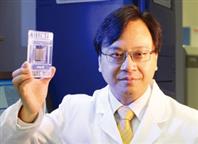

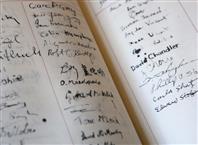
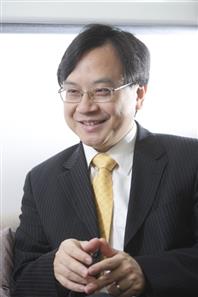
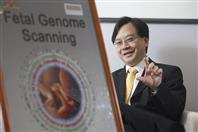


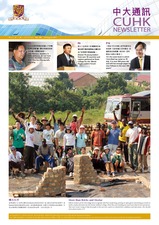




























































































































































Social Bookmarks